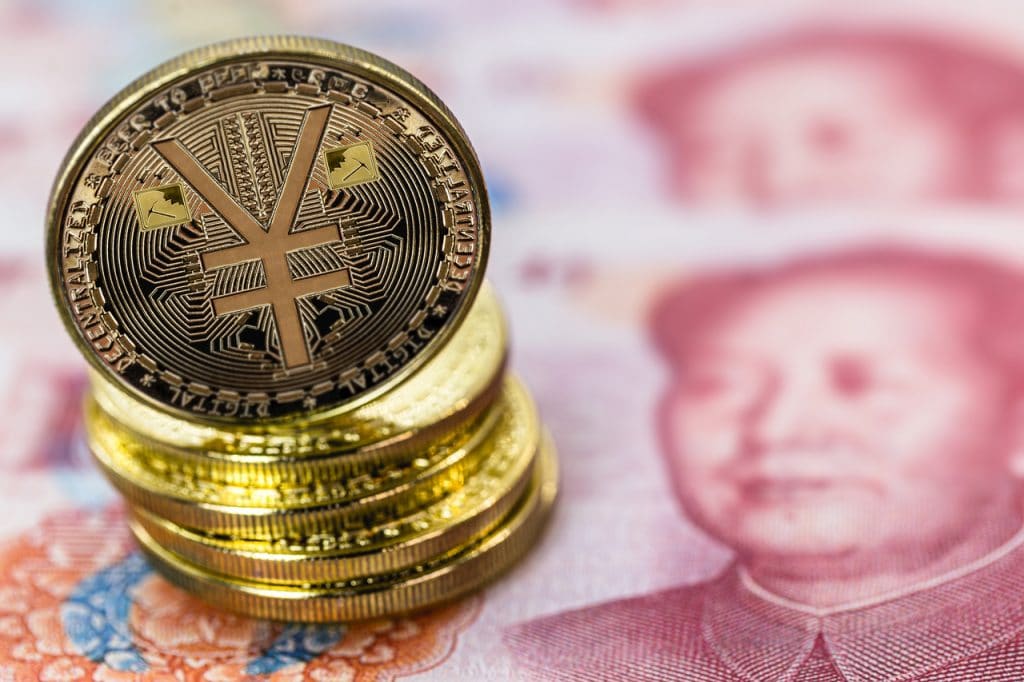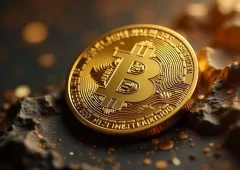China Quietly Advances Yuan as Dollar Alternatives Gain Ground
20.05.2025 17:00 2 min. read Alexander Stefanov
As the global balance of financial power slowly shifts, China is making strategic moves to elevate the yuan as a serious alternative in international trade.
While headlines continue to focus on trade wars and tariffs, Beijing’s long game is becoming clearer: reduce reliance on the U.S. dollar and embed the yuan into the heart of cross-border commerce.
At the center of this effort is the People’s Bank of China, whose governor Pan Gongsheng recently reaffirmed the country’s commitment to expanding the international use of its currency.
This isn’t just rhetoric. Through mechanisms like UnionPay, China has already enabled yuan-based QR payments across roughly 30 countries, including key Southeast Asian markets like Vietnam and Cambodia. These systems make it easier for foreign visitors and small businesses to use the yuan for everyday transactions.
Behind the scenes, yuan-denominated trade is growing. In the first quarter alone, China cleared over 4 trillion yuan through swap lines—marking a new high in cross-border settlements in its local currency.
Meanwhile, President Xi Jinping’s recent regional diplomacy in Southeast Asia reflects more than just goodwill; it’s part of a calculated push to deepen yuan integration across the ASEAN bloc. As more countries explore dollar alternatives, China’s timing couldn’t be more strategic.
The rise of the yuan may not be loud or sudden, but it’s picking up momentum—and it’s reshaping how the world thinks about global reserves and trade settlement.
-
1
Robert Kiyosaki Predicts 2025 “Super-Crash,” Urges Hoarding Gold, Silver, and Bitcoin
23.06.2025 13:31 2 min. read -
2
Billionaire Slams Meme Stock Hype and Sounds Alarm on U.S. Fiscal Health
15.06.2025 18:00 2 min. read -
3
Billionaire Investor Sees Dollar Crash If Key Support Breaks
18.06.2025 15:00 1 min. read -
4
Nassim Taleb Says Global Trust Is Shifting from the Dollar to Gold
22.06.2025 17:00 1 min. read -
5
Geopolitical Shockwaves Hit Ethereum Hard While Bitcoin Stays Resilient
22.06.2025 16:21 1 min. read
Robert Kiyosaki Predicts When The Price of Silver Will Explode
Robert Kiyosaki, author of Rich Dad Poor Dad, has issued a bold prediction on silver, calling it the “best asymmetric buy” currently available.
U.S. PCE Inflation Rises for First Time Since February, Fed Rate Cut Likely Delayed
Fresh data on Personal Consumption Expenditures (PCE) — the Federal Reserve’s preferred inflation gauge — shows inflation ticked higher in May, potentially delaying the long-awaited Fed rate cut into September or later.
Trump Targets Powell as Fed Holds Rates: Who Could Replace Him?
Federal Reserve Chair Jerome Powell is once again under fire, this time facing renewed criticism from Donald Trump over the Fed’s decision to hold interest rates steady in June.
U.S. National Debt Surge Could Trigger a Major Crisis, Says Ray Dalio
Billionaire investor Ray Dalio has sounded the alarm over America’s soaring national debt, warning of a looming economic crisis if no action is taken.
-
1
Robert Kiyosaki Predicts 2025 “Super-Crash,” Urges Hoarding Gold, Silver, and Bitcoin
23.06.2025 13:31 2 min. read -
2
Billionaire Slams Meme Stock Hype and Sounds Alarm on U.S. Fiscal Health
15.06.2025 18:00 2 min. read -
3
Billionaire Investor Sees Dollar Crash If Key Support Breaks
18.06.2025 15:00 1 min. read -
4
Nassim Taleb Says Global Trust Is Shifting from the Dollar to Gold
22.06.2025 17:00 1 min. read -
5
Geopolitical Shockwaves Hit Ethereum Hard While Bitcoin Stays Resilient
22.06.2025 16:21 1 min. read


